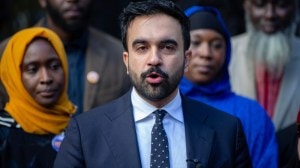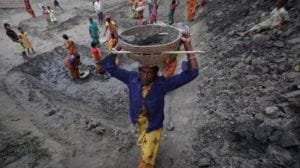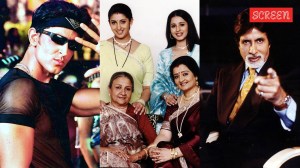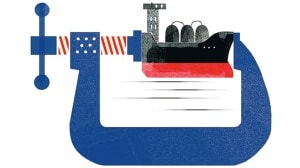Song of the road
We've listened to Pervez Musharraf and Atal Bihari Vajpayee. We’ve heard the polished boots of the Indian and Pakistani army brass crun...

We’ve listened to Pervez Musharraf and Atal Bihari Vajpayee. We’ve heard the polished boots of the Indian and Pakistani army brass crunch on the gravel. We’ve taken note of the eloquence of the foreign policy greysuits of New Delhi and Islamabad hold forth in Washington and Kathmandu on bilateral engagement, which their respective spokespersons succeed in undermining with great elan in time for the 9 o’clock evening news bulletins. And, yes, we cannot but have been made aware of the loony fringe screaming imprecations against Pakistan, curses against India, waving placards that read “India zindabad, Pakistan murdabad” and “Pakistan zindabad, India murdabad”.
It is precisely because we have heard this familiar jaw-jaw for so long that we now need to listen to the song of the road for a change, as two buses — one starting from Lahore, the other from Delhi — cross each other somewhere between these two cities. What are the ordinary people on board and the relatives who await them anxiously trying to tell the ruling elites in their respective countries? These grandmothers who kiss their grandchildren from across the border as if there was no tomorrow; these parents in search of medical aid for ailing children; these greying gentlemen in search of the lost nostalgia of their youth, an old college here, a dish of gol guppa there; these broken families seeking to come together for a brief week? They are telling them this: Just allow us to lead our lives. The Indian Express’s own ambassador, Khaleeq Khan, who boarded the first bus from Delhi to Lahore, put it this way: “I am no ordinary passenger but a messenger of peace.”
This obvious lack of sync between popular aspirations and foreign policy formulations, between ordinary lives and political compulsions, should give the leaders in both nations pause. There is really no need why two nations that were once part of the same entity should continue to exist hermetically sealed from the influences of the other. It’s time to wake up and feel the winds of change. In the world outside, nations are rapidly learning to trade in a past of hostility and prejudice for a future of prosperity and change. Meanwhile, India and Pakistan — ranked No 127 and No 144 in the recent Human Development Report, with dismal development indices to match — continue to snarl and snipe at each other as they have done all these lost decades. The two buses are signs that the political leadership in both countries better take note of: They must either get on board or get out of the way.


- 01
- 02
- 03
- 04
- 05





























